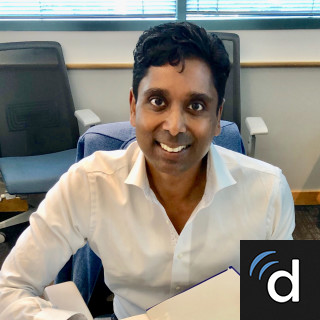By drnaidu | April 22, 2020 at 09:04 AM EDT |
No Comments

There’s a war going on. But, this one has no draft and there are no reserves. Our armor was never ordered, and our soldiers had been scattered across the country. And they weren’t sent off to where any war was expected. They chose where to live, which corps to join, and what type of war they would partake in. Oncologists fought the war on cancer, cardiologists the war on heart disease, neurologists the war on stroke, and so on. Our infectious disease specialists had wars too. There was the war on HIV, a distant memory to most, but recently only minor wars, epiphenomena to the larger wars above. Some worked for hospitals, while others worked alone or in groups, but they all fought in these wars in their own way. And all was good with the world.
Such choice was inherent to a system where physicians paid their own way to become doctors, trained for decades in specialties and then worked for themselves, hospitals or insurance companies on behalf of their patients. The nature of health care delivery in the developed world is highly conducive to this system, where there is excess, in general, and most diseases are chronic, a byproduct of more wealthy societies fraught with obesity, diabetes, sedentary lifestyles and addictions, and their ramifications. And to be clear, we were winning these wars.
But it was not always the case, and in centuries past infectious diseases were the main cause of death, and a quick death at that. This was something the modern world was no longer used to. So what happens when a new infectious disease emerges, like COVID-19, with mass impact on morbidity and mortality? In a health care system not set up for such a vicious and swift enemy, we were utterly and profoundly unprepared and quickly overwhelmed.
The problems were several, and solutions will take time to ponder and develop. Our physicians were not stationed where the war was, for one thing, nor could they quickly get reinforcements. Some had no choice but to participate at the front lines while others had no access to those areas and were unclear of their role. There was no mandate from other areas of the country, for example, or to physicians operating in private practice. Manpower was left up to the hospitals where the emergency rooms were housed. And, even within this workforce, it was not clear how specialists could help. Many had left their basic doctoring skills behind long ago.
Another problem was protection and advocacy. Someone is looking out for our troops when they go off to war, but it wasn’t clear where that responsibility lay with physicians. Do hospitals protect physicians during a pandemic, or does government? Who makes sure we are safe, in this case personal protective equipment, economic guarantees to maintain our income and benefits, and coverage for our families should something happen to us? Who makes sure funding and bailouts for hospitals go to these factors first, covering hospital margins so they can pay those at the front lines? Without these assurances, hospitals are left to worry about their finances, and in some cases have had to institute pay cuts to the very people who are most needed.
If there is one thing that comes out of this it is that we need an emergency plan to respond to new diseases that require massive and rapid reorganization of health care delivery. Physicians should understand that they may be called upon in such situations, and they have to keep their basic skills up, but that their life and their salaries, benefits and families will be protected. And if physicians are going to be asked to serve society as a whole in this way, then there should be loan forgiveness for medical school, limits on malpractice liability, and other concessions in exchange for such national service.
COVID-19 heralded a call to arms, but to do that we have to treat new pandemics as a war and our workforce as soldiers, with all the respect, admiration and protection they deserve. We have to be able to come help if needed, and then go back to our regular war afterwards, all the while not worrying about our personal or financial safety. Otherwise, there will be resentment that we are only looked to for help when needed, and expected to put our lives and our families in jeopardy, without any societal concessions or protections. This is at least one potential way we might do this, exactly.
Until Next Time,
Srihari S. Naidu, MD
Srihari S. Naidu, MD, FACC, FAHA, FSCAI is Director, Cardiac Cath Labs and Hypertrophic Cardiomyopathy Center at Westchester Medical Center and Professor of Medicine at New York Medical College. He is Past Trustee of SCAI, Trustee Emeritus of Brown University, and President-Elect of the NY State Chapter of the ACC. His opinions are his own and do not represent any institution or organization.